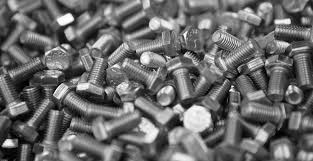Stainless steel fasteners hold significant importance in connecting various construction and manufacturing tasks. They also work effectively. They are also known for being strong and resistant to corrosion, which makes them a popular choice. However, it comes with proper consideration to make sure that they are of excellent quality and last for a long time. This comprehensive guide will help you choose the right stainless steel fasteners for long life.
Understanding Stainless Steel Grades
There are many grades of stainless-steel fasteners with various properties. 304 and 316 are the most widely used grades. Grade 304 has excellent corrosion resistance and is relatively standard. Grade 316 is different in that it includes molybdenum, which allows it to stand up to harsh environments better. Knowing these distinctions is instrumental in choosing an appropriate grade for specific applications. Construction professionals often shop for stainless steel fasteners for projects requiring corrosion-resistant materials.
Finding the Correct Size and Kind
Choosing the appropriate fastener size and type is key. There are various types of fasteners available, such as bolts, screws, and nuts. The type we pick will depend on the project’s requirements. Bolts create strong connections meant for heavy-duty applications, whereas screws are designed for lighter ones. A good or appropriate fit is important for the worker’s safety and stability, so getting the right size is also necessary.
Checking Quality Standards
Quality standards have demonstrated the reliability of stainless steel fasteners. Opt for fasteners certified to relevant standards such as ASTM, ISO, or DIN. The standards ensure that the products have been rigorously tested for strength and durability. Selecting fasteners that meet these standards provides a high level of quality.
Examining Surface Finish
Surface finish can influence the appearance and corrosion resistance of stainless steel fasteners. An attractive, polished finish also acts as corrosion confidence and increased protection against rust. A rough surface could expose the fasteners to the environment, while an excessively smooth surface could also be detrimental. The finish of the fasteners should also be wisely chosen to make the overall appearance even better or to promote functionality.
Considering Environmental Factors
Metal fasteners, especially stainless steel fasteners, can significantly impact performance due to environmental conditions. If you have projects near saltwater or chemicals, you need grade 316 fasteners. Knowledge of the environment of use is critical when selecting materials to provide reliable and enduring performance. We can choose materials that are unaffected by the conditions in the area.
Evaluating Manufacturer Reputation
A good way to evaluate the quality and reliability of the fasteners is to look into the manufacturer’s reputation. You can get some useful details from researching manufacturers and reading reviews by other buyers. Established manufacturers often offer warranties or guarantees that instill a sense of confidence in their products, leading to peace of mind and satisfaction in the purchase.
Understanding Cost vs. Quality
Although price is a significant consideration, it shouldn’t be the only one. Good stainless fasteners might seem more costly today, but long-term savings are realized. Inexpensive fasteners may need to be replaced frequently, resulting in higher long-term costs and a delicate compromise between price and quality that makes a wise investment.
Inspecting for Defects
Examine fasteners before purchase for visible defects such as cracks, burrs, or warping. Such imperfection can reduce the entire fastener’s integrity and result in potential failures. These precautions will prevent upcoming problems and help ensure fasteners meet the standard level and proper inspection.
Ensuring Proper Storage
To preserve the integrity of stainless steel fasteners, we need to store them properly. Keep them in a dry and cool place to avoid exposure to moisture, which can cause rusting. Type and size will make it easier to find and prevent damage.
Utilizing Expert Advice
You may want to consult experts to learn how to choose the right stainless steel fasteners. Their experience can influence the decision-making process, as they ensure the selected fasteners are appropriate for the given fastener and applications. Interacting with specialists will provide additional confidence in the purchase.
Conclusion
While selecting high-quality stainless-steel fasteners, you need to consider many things, such as part grades, size options, and environment. Quality standards, the reputation of the manufacturer, and surface finish can help an individual make the right decision. By investing significant time in selecting the ideal fasteners, you can ensure fruitful projects and durable outcomes.

